The General Administration Customs China (GACC) announced on the 26th of February that pineapple imports from Taiwan had been temporarily halted. This prohibition went into effect on the 1st of March. The announcement sparked a heated debate in the industry. Mr. Lin, a Taiwanese pineapple planter and exporter, and spokesperson for the brand 'Stone Earth', recently shared his view on trends in the industry.
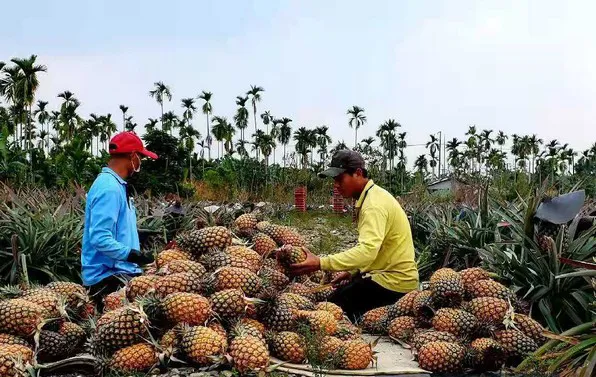
Taiwanese pineapples almost always meet the inspection standards
Mr. Lin shared his view on the matter of food safety inspections, "more than 97% of Taiwanese pineapples are destined for the Chinese market. This is without a doubt an important market for the Taiwanese pineapple industry. There is a question whether this temporary prohibition is too severe. Last year the majority of Taiwanese apples met the standards of the GACC even during the outbreak of Covid-19. However, it is true that a small volume of Taiwanese pineapples carried harmful insect pests that violated GACC standards. These pineapples have been returned to Taiwan."
"I think that the importance of this export market means that exporters should be extra careful to meet the inspection standards of that market. The Chinese market is of immense importance to Taiwanese pineapple exporters. As exporters we should be extremely careful with the product quality of our pineapples to avoid the violation of any inspection standards."
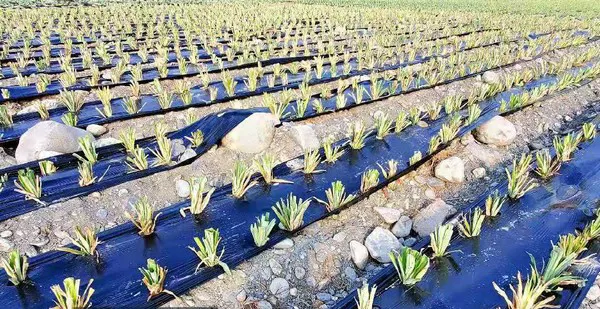
The pineapple industry is in a difficult situation and planters are looking for alternative retail channels
The temporary prohibition on Taiwanese pineapple import into the Chinese market came quite sudden and exporters are in unfamiliar waters. The impact on the Taiwanese pineapple industry has been huge. "The pineapple planting season begins in August and will continue until the January next year. The seedings of this season have only just been planted and they will be harvested next year. Planters have invested on the basis of conditions in previous years because they had no advance notice of the temporary prohibition. The production volume and supply volume in 2022 are therefore likely the same as in previous years and competition will be intense. Some friends of the Taiwanese pineapple industry have already begun to look for alternative markets."
"In addition to alternative retail strategies, the pineapple industry also calls on Taiwanese people to eat more pineapples and support the farmers. The pineapple industry offers promotional sales, group purchase discounts, and participates in exhibitions to stimulate pineapple sales. These activities will certainly help ameliorate the conditions in the Taiwanese pineapple market."
According to Mr. Lin these measures help the industry, but they do not solve the urgent problem in the Taiwanese pineapple market. This situation requires full participation of everyone involved! Even if these measures can help sell out all the pineapples this season, there is still a huge supply volume next season and those pineapples will face the same difficulties. There have to be structural changes to overcome this problem, unless the Chinese export market suddenly opens up again. The market prospects do not look good for Taiwanese pineapples and Taiwanese pineapple planters and exporters have to be very cautious.
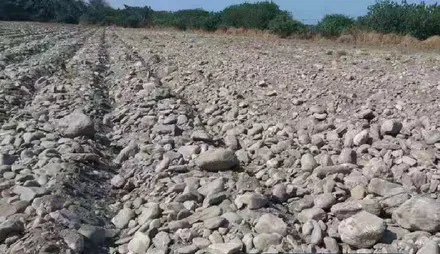
Temporary prohibition has impact on other pineapple suppliers
"Taiwan primarily exports the pineapple variety Tainong no. 17. That variety was cultivated in Taiwan and is commonly known as the Jinzuan pineapple. More than 87% of the surface area devoted to pineapple plantation in Taiwan grows Jinzuan pineapples. The peak period of the Jinzuan pineapple season takes place every year between February and June. The Jinzuan pineapples is quite popular because the fibers are tender and even the core of the pineapple is edible. Consumers do not have to waste a single piece of fruit. Furthermore, the Jinzuan pineapple is delicious and fragrant, which is why the Chinese market demand for Jinzuan pineapples grows every year. This pineapple variety is grown in Hainan, and Guangdong as well. Many farmers abandoned their previous pineapple varieties and switched to Jinzuan. However, the weather conditions in Hainan are not exactly the same as in Taiwan and the soil conditions are different too. That is why the Jinzuan pineapples from Hainan taste and smell different from Taiwanese Jinzuan pineapples."
"The temporary prohibition on Taiwanese pineapples reduces the Chinese market supply volume, which means market demand for pineapples from other suppliers grows. The Philippines, Costa Rica, and Panama all export huge volumes of pineapples to the Chinese market. They mainly supply MD2 pineapples. Although the MD2 pineapple variety is sweet, the fibers are coarse and the pineapple core is inedible. Although the Philippines also supplies Jinzuan pineapples, their supply chain is longer and the shipping cost adds to the market price, which hurts the competitive market position of Jinzuan pineapples from the Philippines," explained Mr. Lin.
"The flavor of Jinzuan pineapples can not be replaced by MD2 or other varieties. Consumers who prefer the very edible nature of Jinzuan pineapples will first go to Jinzuan pineapples from Hainan and Guangdong. The sales volumes from these production areas already increased in the last few years," said Mr. Lin. "That is why I think the temporary prohibition on the import of Taiwanese pineapples will first have a visible impact on the sales conditions in Hainan and Guangdong. The impact on the Philippines and Latin America will be smaller."
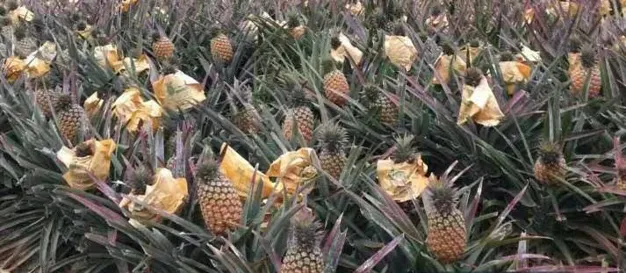
Japan pre-orders premium Jinzuan pineapples from Taiwan
Although the impact of the temporary import ban will have a huge impact on the Taiwanese pineapple industry, Mr. Lin is not worried about the future of 'Stone Earth' pineapples.
"The second-largest export market for Taiwanese pineapples is Japan. Although the export volume is not as huge as the export volume to China, there is a steady demand for premium pineapples, and this demand is growing. Some of the Taiwanese pineapples originally destined for the Chinese market will find their way to Japan. We have focused part of our marketing strategy on high-end supermarkets in Japan since 2017. We sell about 65% of our pineapples to China and 35% to Japan, with less than 1% leftover for the domestic market. When the temporary ban was announced, we reached out to our Japanese partners and they expressed interest. We believe that the 'Stone Earth' marketing strategy is the solution for this problem."
"Regardless of the temporary prohibition, Taiwanese pineapple planters who maintain product quality standards and improve the level of plantation technology will always weather difficult circumstances," said Mr. Lin. "Take 'Stone Earth' pineapples for example. First, we have high standards for product quality and strictly maintain them. Second, our pineapples have a rich fragrance. We research and develop new product varieties and raise the level of plantation technology. We also strictly control fertilizer management and select pineapples post harvest according to high standards of product quality. We keep pineapples in their original form to meet local soil conditions as best as possible. That is why our pineapples are fragrant and juicy. Second, importers see how we treat our industry with respect, which is why we not only export to China, but we are registered in Japan and Australia as well. We meet the standards in each market and receive great consumer feedback."
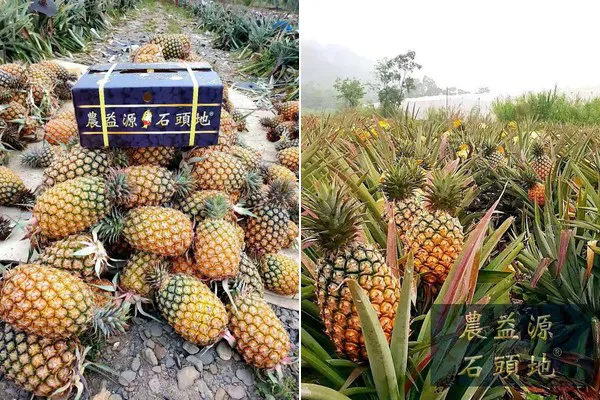
'Stone Earth' has a pineapple plantation that covers more than 73 hectares. The company integrates production, packaging, and sales and maintains the highest standards of product quality. That is why the brand is well known in several export markets.
For more information:
Mr. Lin
Original Agriculture from Stone Earth
E-mail: hanslin338@gmail.com
